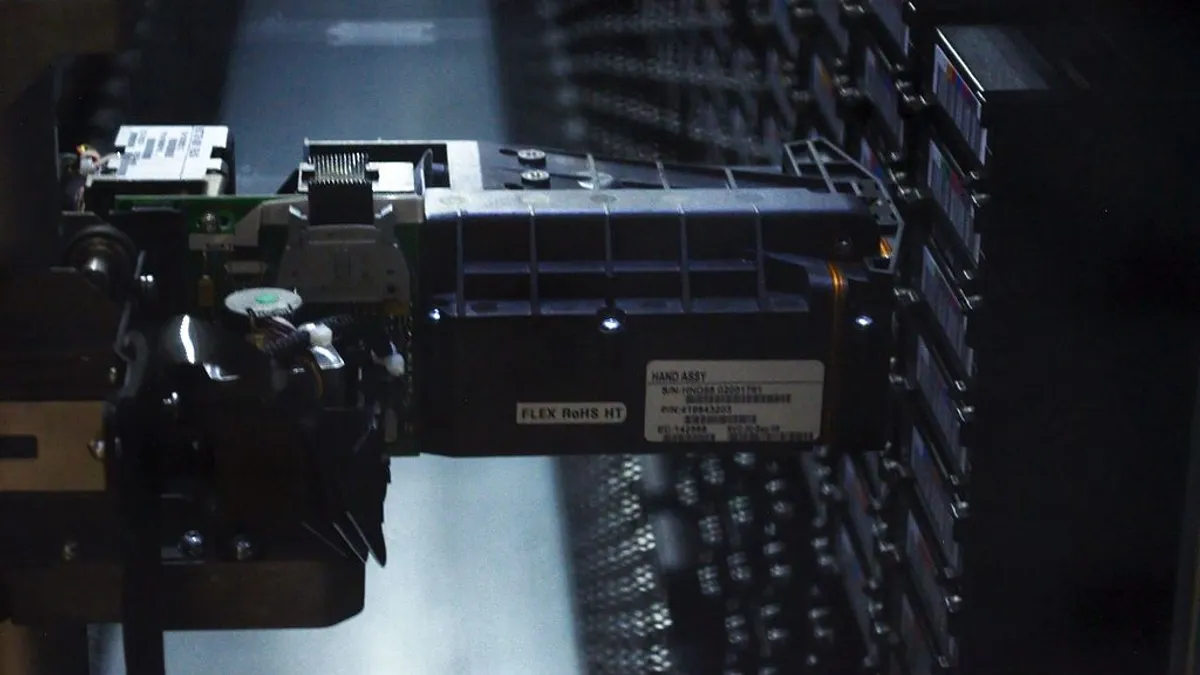Dive Brief:
- Tech company Grabit has developed a means of automating sneaker production through the use of static electricity as a method of grabbing and layering fabrics, Quartz reported. Previously, only humans could layer the differently textured fabrics needed to create a Nike sneaker.
- Nike bought into the technology — literally — by acquiring a minority stake in Grabit, and is installing approximately twelve of its machines in Mexican and Chinese factories. Grabit's robots can position the layers of a sneaker upper in 50 to 75 seconds, versus the traditional way of assembly by hand, which may take 10 minutes or more.
- Esquel Group, a manufacturer for apparel companies such as Tommy Hilfiger and Ralph Lauren, has also invested in the technology for use creating cuffs and collars, which also are comprised of multiple layers.
Dive Insight:
Nike's goal to reduce lead times fuels the need to create "smart factories," as sports apparel competition intensifies.
Nike's intent to cut its production time by half is well-served by the decision to invest in new automation, according to company forecasters. Its concurrent plan to establish the Express Lane initiative is already in place in such countries as North America, Western Europe, and China, to serve busy — and demanding — markets including Shanghai, Seoul and Tokyo. The plan seeks to help maintain high revenue rates rates by offering a steady stream of new models, despite the potential loss of exclusivity.
These new production goals, and the resulting redirection to China, are in part caused by the incursion of Adidas into the massive American sportswear market. To maintain its profit margin, not only is Nike producing more shoes faster and selling directly to a new audience, but the company has also finally agreed to partner with e-commerce giant Amazon, where its shoes (or their counterfeits) have long gone for less than retail price.
While formerly the shoemaker could afford to overlook the black market, thanks to Adidas, it can no longer do so, and will soon appear — in limited release — on the site. Long a holdout, recognition of Adidas' ubiquity on the site means a policy turnaround.














